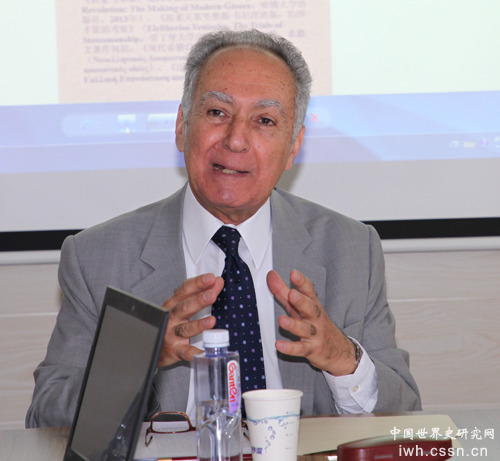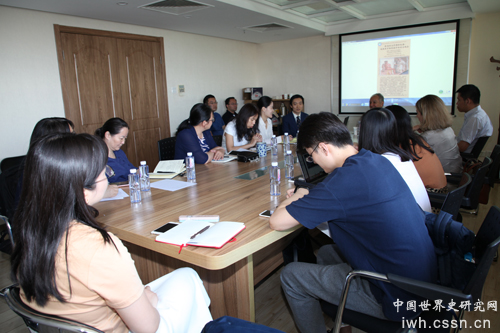Professor Paschalis Kitromilides of University of Athens Visited IWH
2019-06-10


On May the 31th, Professor Paschalis M. Kitromilides (Department of Politics, University of Athens and member of the Academic Committee, Council of Greece) paid an academic visit to IWH, and delivered a lecture on “The Origin of European Political Thought: Political Consciousness in Aeschylus’ Tragedies”. Scholars and students from Embassy of Greece in Beijing, Department of History, Peking University, Department of Politics, Tianjin Normal University as well as Institute of World Politics and Economics, Academy of Marxism, Institute of Modern Chinese History and IWH, CASS took part in the lecture.
In his introductory remarks, Professor Kitromilides cited the plot in Aristophanes’ Frogs, in which Aeschylus beats Euripides and gains the qualification to revive and guide Athens, in order to show the important role of Aeschylus in Athenians’ mind as a spiritual supervisor of the democratic polis. He went on to point out that the honours bestowed to Aeschylus by Aristophanes can be justified. As a protector and witness of Athenian democracy in its early stage, Aeschylus described the image and features of Athenian democracy in the 5th century B.C. by his tragedies. He also expressed the earliest praise and reflection of Athenian intellectuals towards the democracy adopted by their own polis. Professor Kitromilides collected a lot of evidence to show that certain key elements of the direct democracy in Athens, such as voting, justice and arbitration, are all vividly reflected, explained and praised in the mystical or Persian plots of Aeschylus’ tragedies. In that sense, it might not be exaggerated to name Aeschylus as the first writer who offered reflection to Athenian democracy in the surviving historical evidence.
After the lecture, the participant scholars discussed about the relationship between ancient Greek festivals and drama performance, the methodology of interpreting ancient Greek materials through the perspective of modern political theories, the availability and limitation of ancient Greek historical sources, Aeschylus’ own political opinions and the influence of ancient Greek tragedy on the contemporary politics.
